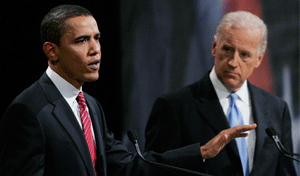ATAA Responds to President Obama's April 24 Statement
 Ergun Kirlikovali, President of Assembly of Turkish American Associations responds President Obama'April 24 statement. Kirlikovali said over one million Ottoman Muslims and over 600,000 Ottoman Armenians perished or were displaced in eastern Anatolia in his statement. "Many of us Turkish Americans are the grandchildren of WWI refugees from the Balkans and Caucuses," Kirklikoavali says. Kirlikovali's letter to President Obama is below.
Ergun Kirlikovali, President of Assembly of Turkish American Associations responds President Obama'April 24 statement. Kirlikovali said over one million Ottoman Muslims and over 600,000 Ottoman Armenians perished or were displaced in eastern Anatolia in his statement. "Many of us Turkish Americans are the grandchildren of WWI refugees from the Balkans and Caucuses," Kirklikoavali says. Kirlikovali's letter to President Obama is below.
"Mr. President:
On behalf of the Assembly of Turkish American Associations (ATAA), I would like to express our sympathy as Armenians remember those who lost their lives or were relocated during WWI.
Over 45 nations emerged as the Ottoman Empire was destroyed by nationalist rebellions, massacres, and displacement of civilians, resulting in the loss of over five million Ottoman citizens, including 4.1 million Muslims. The methods of WWI were so severe that western leaders justified the violence because in their minds it was "the war to end all wars." Many of us Turkish Americans are the grandchildren of WWI refugees from the Balkans and Caucuses.
Inspired by other nationalist movements, the Armenian Revolutionary Federation (ARF) attempted to create an Armenian state by insurgency and by aiding the Russian invasion of eastern Anatolia. During the Armenian Revolt, 1885-1919, over one million Ottoman Muslims and over 600,000 Ottoman Armenians perished or were displaced in eastern Anatolia.
The March 1915 Van Revolt, which saw the massacres of over 60,000 Muslims by Armenian rebels, gave cause for the April 24, 1915 house arrests of over 200 Armenian revolutionary leaders. In May 1915, the ARF rebellion was countered by a security-based relocation of Armenian civilians from the eastern war zones. In November 1915, the relocation included the western port city of Izmit, where Armenian homes were being used to import and store weapons to help the Russians and Armenian rebels in the east. Armenians who were not in the war zones were not affected by these national security measures.
Opposing ARF, the first prime minister of Armenia Hovhanes Katchaznouni, had advocated negotiating with rather than fighting the Ottoman Empire. At the end of the war, he used the term, meds yeghern, (the great catastrophe) to blame ARF for dragging the Ottoman Armenians into a fight with the Ottoman Empire under a "mental aberration" of a greater Armenia.
We mourn the loss of lives of both Armenians and Turks during this terrible time. We do not deny that massacres occurred, but respectfully disagree that the massacres constitute genocide as defined by the U.N. Convention. We believe historical inquiry should decide the facts.
While the vast majority of experts on Ottoman history do not agree that the Armenian case constitutes genocide, and while large pockets of strong public opinion disagree with the experts, we find both Armenia and Turkey courageous to face their mutual history by signing the Protocols and agreeing to the Historical Commission. We call upon both parliaments to ratify these protocols and normalize relations between the two nations, parallel with the removal of Armenian forces from western Azerbaijan and the return of over one million Azeri refugees to their homes. We can heal old wounds by first healing new wounds.
Finally we would like to express our desire to establish a dialogue with the Armenian American community to foster greater understanding of our shared history and to focus on the future needs of our communities, as Turks, Armenians and, most importantly, as Americans."
Last modified onSaturday, 06 May 2017 10:07
Latest from Admin TOA
- The Young Star of the Gastronomy World Is The New Owner of Samdan
- From Dream to Reality, from Muş to Illinois: Zellano Home, the Largest Furniture Store Under One Roof in the USA!
- 300 migrants to be housed at shuttered Catholic church on Northwest Side in Chicago
- Turkish Philanthropy Funds Hosts 2024 Innovation and Social Impact Summit
- Turkish Stand-Up Sensation Hasan Can Kaya Embarks on U.S. Tour with Art Evi Production, in212 Production, and TAAS New York
